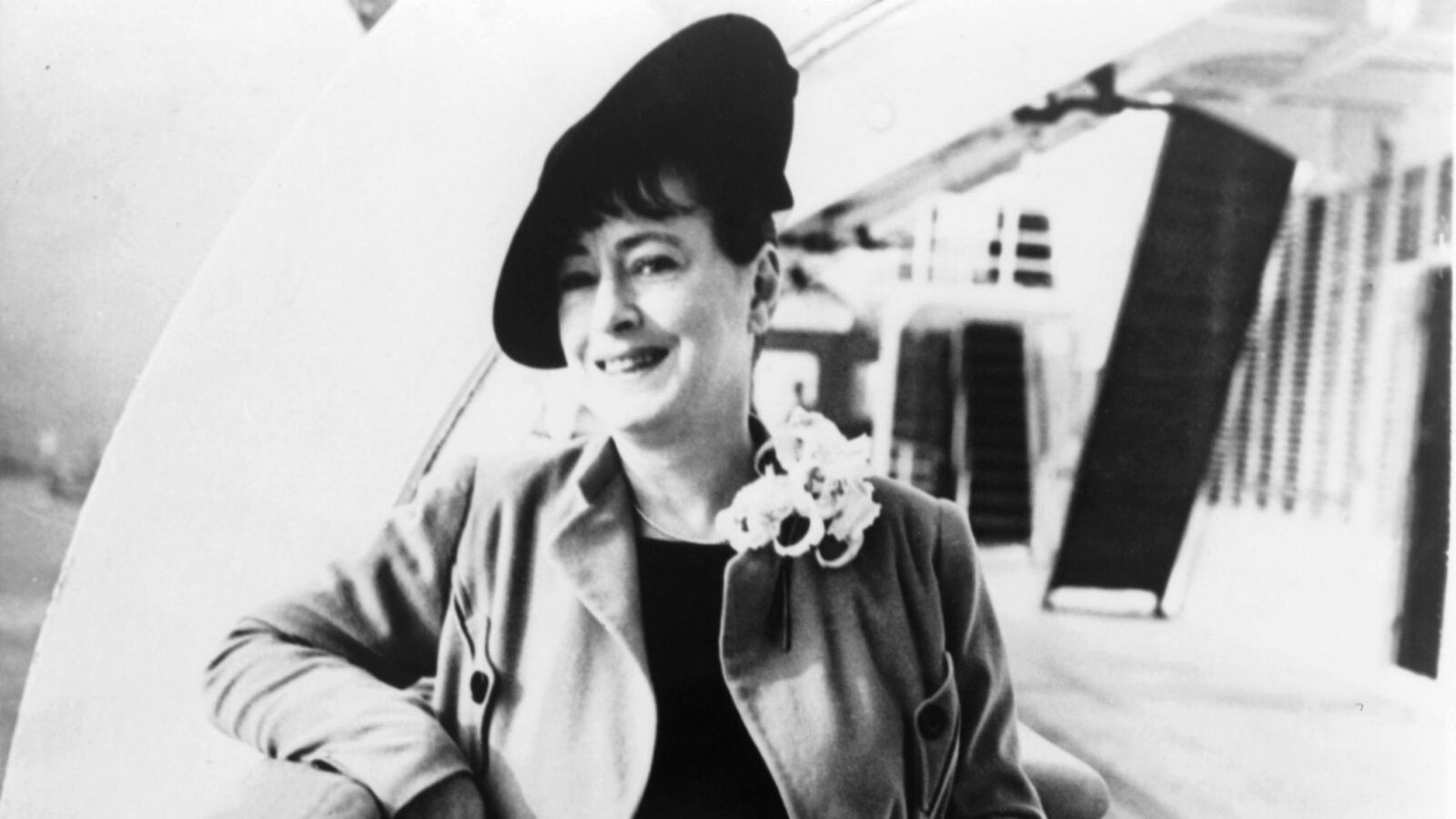You may know Dorothy Parker as the acid-tongued wit who once said a performance by Katharine Hepburn “ran the gamut of emotions from A to B,” and who reviewed a Broadway play with the line, “The House Beautiful is, for me, the play lousy.”
But Parker was more than just a hard-bitten theater critic. She was also a poet, short story writer, screenwriter, and literary critic. In fact, she was The New Yorker’s book reviewer from 1927-1933, writing under the pseudonym Constant Reader, and held a similar post at Esquire decades later. Of all her literary eviscerations, perhaps the most famous is the slicing she gave to A.A. Milne’s The House at Pooh Corner, making it clear Mrs. Parker had no taste for whimsy. Here's an excerpt:
“ ‘Well, you’ll see, Piglet, when you listen. Because this is how it begins. The more it snows, tiddely-pom—’
“ ‘Tiddely what?’ said Piglet.” (He took, as you might say, the very words out of your correspondent’s mouth.)
“ ‘Pom,’ said Pooh. ‘I put that in to make it more hummy.’ ”
And it is that word “hummy,” my darlings, that marks the first place in The House at Pooh Corner at which Tonstant Weader Fwowed up.
Of course, not all of Parker’s reviews were negative. An avid reader, she loved and hated with equal intensity. And though the positive reviews might not be as entertaining as the scorchers, the books live on, and are worthy of our attention. Here are five examples of books Dorothy Parker recommended.
Men Without Women by Ernest Hemingway
Parker adored this collection of Hemingway short stories, while castigating those who insisted that only his novels should be taken seriously. She said, “Mr. Hemingway's style, this prose stripped to its firm young bones, is far more effective, far more moving in the short story than in the novel. He is, to me, the greatest living writer of short stories; he is, also to me, not the greatest living novelist.” She goes on to say Men Without Women is “a truly magnificent work,” and “I do not know where a greater collection of stories can be found.”
The Glass Key by Dashiell Hammett
Dorothy Parker was a big fan of Dashiell Hammett’s work, calling him “as American as a sawed-off shotgun.” And while she explains that he doesn't have Hemingway’s scope or beauty, she says it's true that “he is so hard-boiled you could roll him on the White House lawn. And it is also true that he is a good, hell-bent, cold-hearted writer, with a clear eye for the ways of hard women and a fine ear for the words of hard men, and his books are exciting and powerful and—if I may filch a word from the booksy ones—pulsing.”
Round Up by Ring Lardner
While she hated the book's name, complaining “if there were ever a cup given for the most unfortunate title of the year, it would be resting at this very moment upon the Ring Lardner mantelpiece,” she insists that he is such an outstanding artist she is nearly without words. "It is difficult to review these spare and beautiful stories; it would be difficult to review the Gettysburg address. What more are you going to say of a great thing than it is great? You could, I suppose, speak of Ring Lardner's unparalleled ear and eye, his strange, bitter pity, his utter sureness of characterization, his unceasing investigation, his beautiful economy .... But it seems to me that Lardner's qualities are not to be listed, but to be felt, as you read his work."
We Have Always Lived in the Castle by Shirley Jackson
Parker's negative reviews can go on for pages, outlining the sheer torture of the reading experience. Her praise, on the other hand, is often succinct. Here is her entire review of this book: “There is still sunshine for us. The miracle is wrought by Shirley Jackson. God bless her, as ever unparalleled, more than ever in her latest book, We Have Always Lived in the Castle, as leader in the field of beautifully written, quiet, cumulative shudders. This novel brings back my faith in terror and death. I can say no higher of it and her.”
Breakfast at Tiffany's by Truman Capote
Though Breakfast at Tiffany's was published in a book with other stories Parker didn't find as memorable, she had the highest praise for Capote's title story and considerable talents. “Mr. Capote has three speeds, of each of which, I think, he is a master. He is a novelist, a writer of short stories, and a reporter of murderous accuracy.” (I have to interject here to fawn over the phrase “murderous accuracy” as it's applied to Truman Capote.) And only Dorothy Parker can praise one writer and slice an entire grouping of others in one cut. “I am sick of those who skate fancily over the work of Mr. Capote, to give their time to the beat boys. They neglect to say one thing which is, to me, the most important; Truman Capote can write.”
Ellen Meister is the author of Farewell, Dorothy Parker, The Other Life, The Smart One, and Secret Confessions of the Applewood PTA. She teaches creative writing at Hofstra University Continuing Education, mentors emerging authors, lectures on Dorothy Parker and the Algonquin Round Table, and does public speaking about her books and other writing-related issues. Follow her on Twitter @EllenMeister






